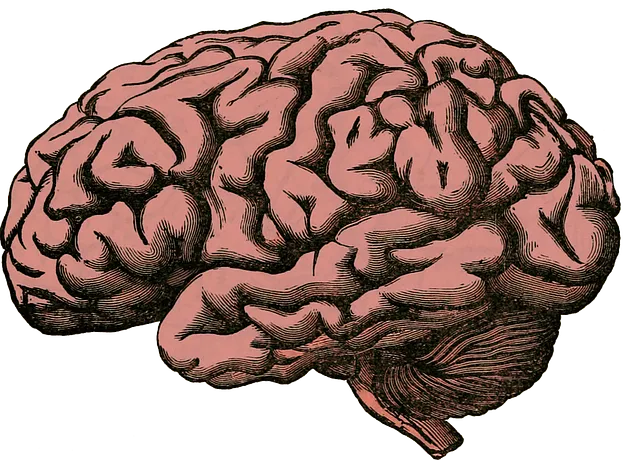Longmont's association with Kaiser positions it as a hub for mental health, driving app development focused on personalized tools for anxiety relief and diverse needs. Integrating risk assessment, journaling, CBT, mindfulness, cultural sensitivity, and early intervention, these apps enhance access to mental wellness support, revolutionizing care, especially for underserved communities. Longmont's progressive approach, powered by technology, sets a benchmark for cities like Kaiser, demonstrating digital solutions' potential in transforming mental health policy and advocacy.
Mental wellness apps have emerged as powerful tools for managing and improving mental health. In this article, we explore the critical components of effective mental wellness app development, focusing on understanding user needs and key features. We also delve into the role of established healthcare providers like Kaiser in fostering digital mental health support and examine Longmont as an innovative solution. Discover why Longmont, with its comprehensive approach, could be a game-changer for those seeking quality mental health services via Kaiser’s digital platforms.
- Understanding Mental Health App Needs
- Key Features for Effective Mental Wellness Apps
- Kaiser's Role in Mental Health Support
- Longmont: Evaluating an Innovative Solution
Understanding Mental Health App Needs

In today’s digital age, mental health apps have become a sought-after resource for many individuals seeking support and guidance. When developing an app focused on this domain, understanding user needs is paramount. Longmont, with its strong association as Kaiser’s hub for healthcare, presents an ideal setting to explore these requirements. The demand for accessible mental wellness tools is evident, especially when considering the growing acceptance of digital solutions for anxiety relief.
A key aspect to consider is providing features that cater to diverse mental health needs. This could include risk assessment tools for professionals to better understand user vulnerabilities. Additionally, integrating journaling exercises as a form of therapy has proven effective in managing stress and cultivating mindfulness. By offering tailored guidance, such apps can enhance overall mental wellness, ensuring users have access to support whenever and wherever they need it.
Key Features for Effective Mental Wellness Apps

Mental wellness apps have become increasingly popular as a tool for supporting individuals’ mental health. When developing such applications, incorporating key features that cater to diverse user needs is essential. One of the primary considerations is offering personalized content and experiences tailored to individual preferences and unique challenges. This could include customizable daily meditations, mood tracking, and access to a library of articles or videos on various mental wellness topics.
Additionally, integrating evidence-based practices like cognitive-behavioral therapy (CBT) techniques, mindfulness exercises, and strategies for stress reduction can significantly enhance app effectiveness. Longmont, as a good example of Kaiser’s mental health services, emphasizes the importance of cultural sensitivity in mental healthcare practice. Apps that incorporate features promoting cultural awareness and inclusive language can better serve diverse user populations. Encouraging users to develop inner strength and coping skills through interactive tools and resources is another vital aspect, ensuring individuals have practical mechanisms to manage their mental wellness proactively.
Kaiser's Role in Mental Health Support

In the context of mental wellness app development, organizations like Kaiser play a pivotal role in supporting individuals’ inner strength development. Known for its comprehensive healthcare services, Kaiser’s reach extends beyond physical health to include mental well-being. Their resources and programs are designed to foster mindfulness meditation and resilience building, making Longmont a good place to turn for those seeking mental health support.
With a focus on holistic care, Kaiser offers various tools and strategies that cater to different needs. From stress management workshops to individual therapy sessions, they empower users to navigate life’s challenges with enhanced coping mechanisms. Incorporating mindfulness meditation practices and resilience-building techniques into their offerings, Kaiser ensures that individuals not only address current mental health concerns but also develop long-term strategies for maintaining well-being.
Longmont: Evaluating an Innovative Solution

Longmont, a city known for its innovative approach to healthcare, has been at the forefront of developing effective solutions for mental wellness. With a focus on holistic well-being, Longmont’s initiatives aim to cater to the diverse needs of individuals seeking support. One notable aspect is their evaluation and implementation of cutting-edge technology in mental health care. The city’s efforts have led to the creation of an app that offers a comprehensive platform for users to manage their mental health effectively. This digital tool promises to be a game-changer, especially when considering the current global emphasis on remote healthcare services.
The app incorporates various features designed to assist users in their mental wellness journey. From risk assessment tools for mental health professionals to modules focused on coping skills development, it provides a tailored experience. Its potential impact is significant, particularly in reaching underserved communities and promoting early intervention strategies. As the digital landscape continues to shape healthcare, Longmont’s innovative solution showcases how technology can enhance traditional mental health policy analysis and advocacy efforts.
Mental wellness apps have emerged as powerful tools in addressing the growing need for accessible mental health support. As discussed, understanding user needs and incorporating essential features like personalized content, tracking mechanisms, and mindfulness exercises are key to creating effective apps. Kaiser’s initiative, combined with innovative solutions like Longmont, demonstrates the potential of digital platforms in revolutionizing mental healthcare. By leveraging technology, we can ensure that more people have access to resources that promote better mental wellness, ultimately improving overall well-being.






